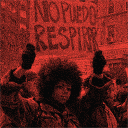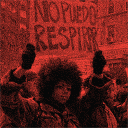
The Next Civil Rights Movement?
The Black Lives Matter movement’s appeal to human rights has deep roots in the history of the black freedom struggle.


The Black Lives Matter movement’s appeal to human rights has deep roots in the history of the black freedom struggle.

An excerpt from Joshua Cohen’s new novel Book of Numbers.

After decades of defeat, organized labor has become the domain of reluctant radicals.

As historian Steve Fraser sees it, we should look toward the “long nineteenth century” for inspiration in constructing a new, lasting American resistance to capitalism.

Podemos has changed the vocabulary and style of the nation’s politics—and altered what it means to be a proud citizen of Spain.

A 1996 poem by the late Philip Levine.

The new groundswell of mobilized citizens suggests an important break—not only with how we imagine politics but also with how we practice it.

What are the visions and complaints, accomplishments and limits of the largest and most important movements on the left today?

Philip Levine, a former auto worker from Detroit and Poet Laureate of the United States from 2011–2012, passed away on February 14, 2015 at the age of eighty-seven. In celebration of his life and work, we present this poem, which …

“I lined my pockets swindling millionaires with a tap of the gavel…”
The Story of My Teeth begins.

South Carolina has always been a battleground of larger, national campaigns for racial justice.

A dialogue between two veteran immigrant rights advocates who have watched the movement grow, diversify, and sometimes contradict itself over the past three decades.

Even as America defined itself as a “nation of immigrants,” it sought a more perfect union by engineering the masses at its gateway.

“What is man?” In his ambitious new book, Mark Greif assures us this is a valid question that we shouldn’t be ashamed to ask.

China’s recent uptick in labor unrest has given leftists hope that the world’s largest working class is building a labor movement to match its scale. But Chinese workers are still far from having a national voice.